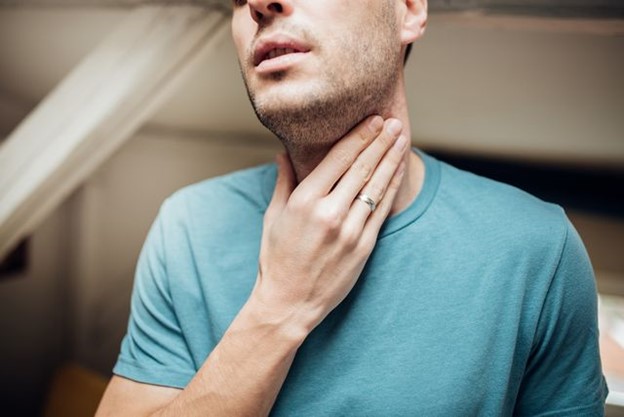They’re slightly different from the original version.
BY EMILIA BENTON
RGSTUDIOGETTY IMAGES
We know, we know. Just as vaccines became widely available and we thought we were seeing light at the end of the Covid-19 pandemic tunnel, the Omicron variant reared its ugly head. It seems like everybody and their mother is testing positive, despite being vaccinated, almost like it’s a matter of when, not if, you’ll be the next one to get infected.
Even though the Omicron variant is running rampant and proving to be even more contagious than previous variants and strains, the good news is that infections are mostly looking to be far less severe in people who are vaccinated, also making for less hospitalizations. Still, we don’t blame you if you want to be smart and still do your best to avoid becoming infected at all. As such, we consulted with a physician about what Omicron Covid-19 symptoms to watch for to stay healthy.
As mentioned, the Omicron variant is causing much milder symptoms than the original Covid strain and the Delta variant, which is good news, says Suneet Singh, MD, an emergency room physician and medical director of CareHive Health in Austin, Texas.
The classic symptoms of the earlier strains were: cough, fever, and intense muscle aches, as well as the loss of taste or smell. In very severe cases, chest pressure, as well as shortness of breath, were also prominent symptoms.
Given we know the classic Covid-19 symptoms, let’s break down just how different the Omicron variant is as far as symptoms, and how to know if you have it.
What exactly are the main and lesser-known symptoms of the Omicron variant?
Aside from classic Covid-19 symptoms, according to Dr. Singh, some of the distinguishing symptoms of the Omicron variant are:
- runny nose
- stuffy nose
- sore throat
“Omicron, [meanwhile,] is less likely to invade the lungs,” Dr. Singh says. “Instead, Omicron is causing more upper respiratory symptoms.”
Omicron is not known to result in a loss of taste or smell, unlike the other variants, Dr. Singh continues. However, because the symptoms of Omicron are less severe, it can be hard to differentiate it from other causes of upper respiratory conditions like seasonal allergies. (Because it wasn’t already challenging enough to determine if it’s a cold or Covid, right?)
If you do have symptoms such as a runny or stuffy nose, sore throat, cough, and/or fever, it is very important to get tested as soon as possible and stay at home while you wait for your results, Dr. Singh says.
What should I do if I catch it?
If you test positive for Covid-19, no matter the variant, it’s important to consult with your doctor about the best treatment path forward for you as an individual, Dr. Singh says. You can safely do this with a virtual visit to limit your exposure to others while you’re sick. Not only is this more convenient than unnecessarily heading to the ER or urgent care, it’s also likely going to be far cheaper.
“During this visit, you may be prescribed one of the two new anti-Covid medications that recently became available on the market earlier this year,” he explains. “Your team will also work with you to determine if you are a candidate for monoclonal antibody therapy.”
In any case, if you have Covid, be sure to get plenty of rest, hydrate well, and use over-the-counter medications such as throat lozenges, pain relievers like ibuprofen, and fever-lowering medications like acetaminophen, or Tylenol, he adds.
How can I protect myself from Omicron?
Without a doubt, the best means of protection against Covid altogether is to get vaccinated (that is, a full series and their recommended booster) if you haven’t already, he says.
“In addition to vaccination, social distancing remains an important part of protection from Omicron,” he adds. “If possible, try to maintain a safe distance of at least six feet apart from others, minimizing physical contact and wearing an appropriately fitting mask to reduce the risk of [getting] Covid.”
Additionally, if you are going to still gather with others, especially with anyone at high risk of Covid-related complications, it’s also important to get tested within 48 hours of the event. This is key for detecting an infection while you may be symptomatic, Dr. Singh says.
“A PCR test is considered the gold-standard test to detect all variants of COVID, including Omicron,” he says. “Antigen [or rapid] tests are also useful to detect disease, but they are known to be less sensitive. Ideally, a negative antigen test result should be followed by a PCR test for a definitive answer. If either a PCR or antigen test is positive, then you are actively infected with the disease.”
The bottom line: While you can rest easily knowing that becoming infected with Omicron is likely to be less severe if you’re vaccinated, continue to do your best to avoid becoming infected altogether. And it can’t be said enough: If you still haven’t gotten vaccinated, schedule your appointment to do so today.

